As a BetterHelp affiliate, we receive compensation from BetterHelp if you purchase products or services through the links provided
The fawn response is often overlooked in discussions of trauma and abuse, but it is a crucial aspect to consider, especially when it comes to narcissistic abuse. Individuals often experience one of the four fear responses – fight, flight, freeze, or fawn – when faced with a threat. While the first three are well-known, the fawn response requires a deeper understanding to recognize its role in coping with particularly manipulative and controlling relationships.
Narcissistic abuse is characterized by manipulation, control, and emotional exploitation that can leave victims feeling trapped and helpless. It is common for these victims to develop a fawn response in an attempt to protect themselves. Fawning is a psychological defense mechanism where the individual appeases the abuser to prevent harm. This response can become deeply ingrained and may persist long after the abusive relationship has ended, influencing other aspects of the victim’s life and future relationships.
Key Takeaways
- The fawn response is a lesser-known trauma response, often exhibited in victims of narcissistic abuse.
- Narcissistic abusers control and manipulate their victims, leading to the development of fawn behaviors as a defense mechanism.
- Acknowledging and understanding the fawn response is essential for healing and moving forward from narcissistic abuse.
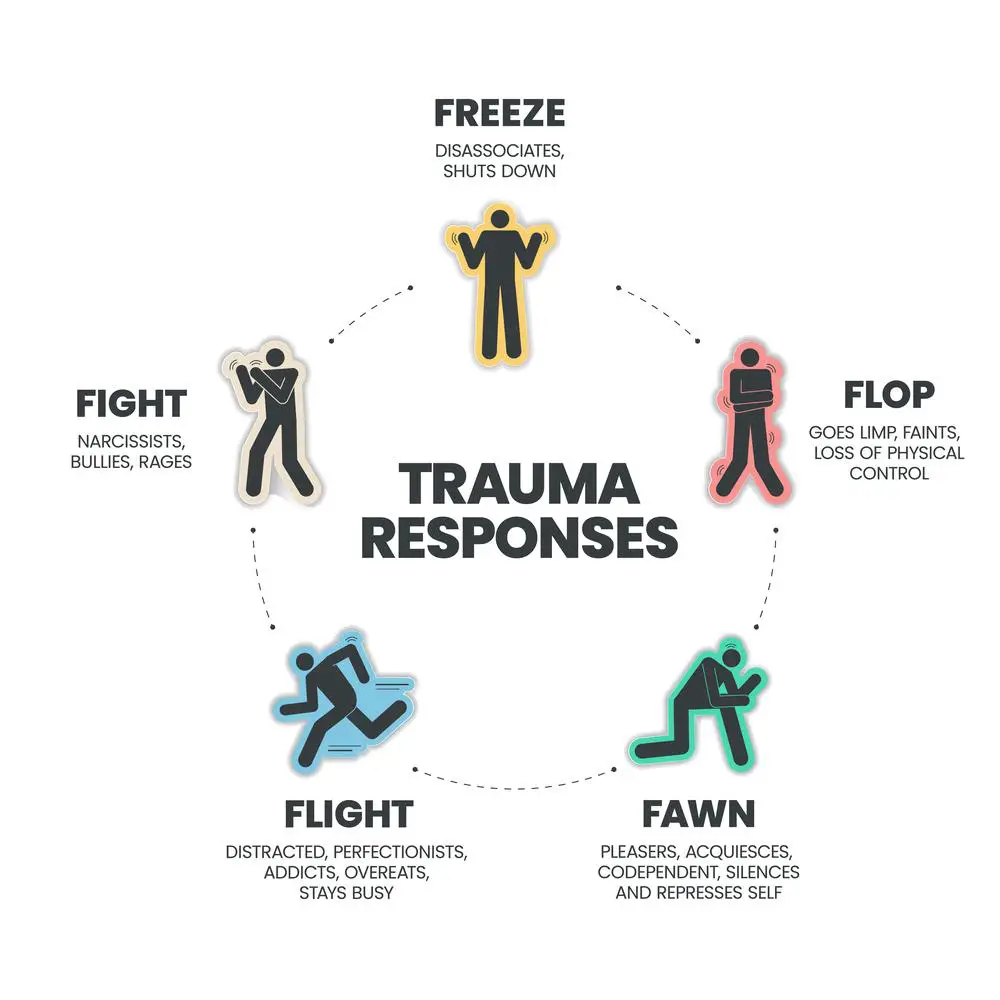
Understanding Trauma Responses
When dealing with trauma, it’s essential to understand the different responses your body and mind may exhibit. In this section, we’ll briefly discuss the four primary trauma responses: Fight, Flight, Freeze, and Fawn.
Fight Response
The Fight response is your body’s natural reaction to confront a threat directly. When faced with a narcissistic abuser, you might stand up for yourself and challenge their behavior. This response might involve setting boundaries, expressing your needs, and refusing to be manipulated. It’s essential to remember that although standing up against the abuse is admirable, it can be emotionally and mentally draining.
- Tip: Finding the balance between standing your ground and conserving your emotional energy is crucial. Don’t feel obligated to engage in every battle.
- List of Coping Mechanisms:
- Deep breathing exercises to maintain calm
- Scripts or rehearsed lines for setting boundaries
- A list of allies you can call upon for backup
Flight Response
The Flight response is your instinct to escape the situation or danger physically. If you’re experiencing abuse from a narcissist, this might involve distancing yourself from them or ending the relationship altogether. When choosing to leave, ensure your safety, gather your resources and support network, and remember that fleeing might not always be a viable option for everyone.
- Tip: Plan your exit strategy carefully. Rushing might leave you vulnerable.
- Action Steps:
- Identify safe places you can go
- Secure vital documents and essentials
- Connect with a support network, even if it’s just one trusted person
Freeze Response
When your body and mind perceive a threat as overwhelming, the Freeze response is often activated. This response can lead to feeling stuck, disconnected, or unable to react. In the context of narcissistic abuse, you might find yourself unable to leave or confront the abuser. It’s crucial to recognize that this response is natural and does not mean you’re weak or powerless. Reach out to supportive friends, family members, or a therapist if you are frozen.
- Tip: Mindfulness and grounding techniques can be helpful here. Use your five senses to anchor yourself in the present.
- Reaching Out:
- Hotlines you can call or text
- Therapists specializing in trauma
- Supportive communities online or in-per
Fawn Response
Lastly, the Fawn response is a less known reaction to trauma but equally important in understanding. Coined by therapist Pete Walker, the fawn response refers to behaviors that aim to please, appease, or pacify a threat to stay safe. For example, with narcissistic abuse, you might put the abuser’s needs above your own, constantly seek approval, or try to prevent further abuse by being overly compliant. Acknowledging this response is essential because it can help you better understand your behavior in the face of a narcissist.
- Tip: Becoming aware of your tendency to fawn can be half the battle. Keep a journal to identify triggers and patterns.
- Self-Reflective Questions:
- Am I acting out of fear or genuine care?
- What is the emotional cost of my compliance?
- Am I suppressing my own needs excessively?
Flopping
The term “Flop” is sometimes used to describe a feeling of utter collapse, mentally and physically, in response to overwhelming stress or danger. It’s like your body and mind give out, and you might experience extreme fatigue, disassociation, or a sense of defeat.
- Tip: If you find yourself “flopping,” it’s important to seek immediate support. This is a sign that your coping mechanisms are heavily strained.
- What To Do:
- Engage in immediate self-care: find a safe space, rest, and hydrate.
- Reach out for professional help as soon as you can.
- Communicate your condition to a trusted support network, even if it’s just sending a text to say you’re struggling.
“Flop” isn’t as widely recognized as the 4Fs (Fight, Flight, Freeze, Fawn) as it is a more extreme response, but it is essential to recognize how complex trauma responses can be. It’s okay to have moments of collapse; what’s critical is what we do to take care of ourselves afterward.
Understanding your natural responses can be empowering. It gives you the tools to navigate challenging situations and take steps toward healing.
 Narcissistic Abuse and Its Impact
Narcissistic Abuse and Its Impact
Narcissistic abuse is a form of emotional abuse carried out by individuals with narcissistic personality disorder (NPD) or narcissistic traits. These individuals have a strong need for admiration and display a lack of empathy towards others. In many cases, narcissistic abuse damages the victim’s sense of self-worth and often results in lasting emotional pain.
When you’re exposed to narcissistic abuse, it’s crucial to recognize the cycles and effects it has on you. The narcissistic abuse cycle typically involves:
- Idealization: The abuser initially showers you with praise and admiration, making you feel special and cherished.
- Devaluation: Once they’ve gained your trust, the abuser starts to belittle, criticize, and demean you, destroying your self-esteem.
- Discarding: Eventually, the abuser might discard you when they feel you’re no longer useful or when you start asserting yourself.
This cycle might repeat itself multiple times throughout the relationship, leaving you questioning your reality and constantly seeking the abuser’s approval.
Now, let’s discuss some of the common effects of narcissistic abuse on your mental and emotional health:
- Anxiety: You might constantly feel on edge, nervous, or afraid in the presence of the narcissist.
- Depression: The ongoing abuse can lead to feelings of hopelessness, sadness, or even thoughts of self-harm.
- Low self-esteem: Repeated put-downs and constant criticism from the abuser can severely damage your self-worth.
- Trust issues: The manipulative nature of the abuser can make it challenging for you to trust others in future relationships.
- Complex PTSD: In severe cases, you might develop complex post-traumatic stress disorder (C-PTSD) due to the ongoing emotional trauma.
To cope with narcissistic abuse, consider these strategies:
- Educate yourself: Learn about narcissistic abuse and NPD to better understand the abuser’s behavior and tactics.
- Establish boundaries: Clearly communicate your limits to the abuser and enforce them consistently.
- Seek support: Reach out to friends, family, or professional help to validate your experiences and assist in your recovery.
- Prioritize self-care: Engage in activities that promote self-love, relaxation, and overall well-being.
In the end, recovering from narcissistic abuse can be a long and arduous journey. But with knowledge, support, and determination, you can regain your self-worth and find healing from the trauma you’ve endured.
 Fawn Response To Narcissistic Abuse
Fawn Response To Narcissistic Abuse
Experiencing narcissistic abuse can be distressing, and your body may react in several ways to cope with the trauma. One such reaction is the fawn response, often linked to people-pleasing behavior. This response occurs when you try to appease the narcissist to avoid further harm.
When you’re dealing with a narcissist, you may find yourself going out of your way to:
- Comply with their demands
- Agree with their opinions
- Make them feel important, even at the cost of your self-esteem
This might seem like a helpful strategy at first, but over time, it can impact your mental health and sense of self-worth.
Recognizing the Signs
If you’ve experienced narcissistic abuse, it’s important to recognize the signs of a fawn response. Some common indicators include:
- Constantly seeking validation from the narcissist
- Suppressing your own needs and desires
- Avoiding confrontation and suppressing your true feelings
- Feeling responsible for the narcissist’s emotions and needs
Breaking the Cycle
Breaking away from this trauma response might be challenging but remember that your well-being and mental health come first. Here are some tips to help you overcome the fawn response:
- Set Boundaries: It’s essential to establish healthy boundaries in any relationship, especially in one involving a narcissist. Clearly communicate your limits, and stick to them.
- Practice Self-Compassion: Remind yourself that you deserve love and respect. Work on building your self-esteem and prioritizing your needs.
- Seek Professional Help: A therapist or counselor can help you navigate the healing process and provide tools for overcoming people-pleasing tendencies.
Remember, recovering from narcissistic abuse takes time, and healing isn’t linear. Be patient and gentle with yourself as you navigate this journey.
 Boundaries and Relationships
Boundaries and Relationships
Establishing and maintaining healthy boundaries in relationships is essential, especially when dealing with a narcissist. Boundaries protect you from potential harm and ensure your needs and values are respected. Let’s explore some ways to develop personal boundaries when facing narcissistic abuse.
First, remember that you have the right to prioritize your well-being. Make it a point to focus on your own needs and emotions. Recognize the importance of self-care and take steps to preserve your mental health. Developing self-awareness can help you understand your emotional triggers and work through conflicts with a more objective perspective.
Next, avoid engaging in arguments with the narcissist. Remember, they may use scrutiny or intimidation to make you second-guess yourself. Instead, stay firm in your convictions and disengage from any heated discussions. Keeping a mental or physical distance can prevent unnecessary stress and help you maintain your emotional balance.
Some helpful tips for setting personal boundaries are:
- Clearly communicate your limits and expectations.
- Refuse to tolerate invasive or disrespectful behavior.
- Limit or cut off contact when necessary.
- Seek support from trusted friends or professionals.
Remember, consistency is key when it comes to maintaining your boundaries. Be prepared to enforce the consequences you’ve set if your boundaries are violated.
Establishing personal boundaries may lead to changes in your relationships. For example, you may identify which relationships serve you positively and which ones contribute to ongoing stress or discomfort. By evaluating your relationships and prioritizing those that support and respect your boundaries, you can foster positive connections while minimizing negative ones.
In conclusion, establishing and maintaining boundaries is critical when dealing with narcissistic abuse. By prioritizing your needs, disengaging from conflict, and staying consistent, you can protect your well-being and cultivate healthier relationships. So, remember to stand firm with your boundaries, seek support, and care for yourself.
 The Role Of Childhood Trauma
The Role Of Childhood Trauma
Experiencing childhood trauma can have a significant impact on how one reacts to various situations in life. In particular, it can contribute to the development of the fawn response in response to narcissistic abuse.
When you have a history of childhood trauma, it’s not unusual for you to adopt people-pleasing behaviors to cope with threats or dangerous situations. This is the essence of the fawn response, where the individual tries to appease the abuser to prevent further harm.
Children who grow up in narcissistic environments often learn that chaos is “normal.” As a result, you might not have had many healthy experiences to guide your relationships, leading to a higher likelihood of attracting narcissistic partners in adulthood.
Recognizing the fawn response in yourself is essential for healing and moving forward from narcissistic abuse. Here are a few tips to help you on your journey:
- Identify triggers: Pay attention to situations or people that cause you to respond with a fawn reaction. Understanding these triggers can help you become more mindful and proactive in addressing them.
- Speak up: Practice asserting your needs and desires when you typically default to pleasing others. It might initially feel uncomfortable, but it’s a crucial step in breaking the fawn response pattern.
- Set boundaries: Learn to set healthy boundaries with the people in your life, especially those who have exhibited narcissistic traits.
Remember, healing from childhood trauma and overcoming the fawn response takes time, but with determination, self-awareness, and support, you can break free from the patterns that have held you back.
 Therapeutic Approaches for Healing
Therapeutic Approaches for Healing
Facing the aftermath of narcissistic abuse can be incredibly challenging and emotional. As you embark on your journey to healing, it’s important to consider various therapeutic approaches that can support your mental health. In this section, we aim to offer a few friendly insights into potential therapeutic pathways that can lead you toward newfound personal growth.
First and foremost, engaging in one-on-one therapy with a mental health professional can provide you with a nurturing environment to share your emotions and experiences. During these sessions, you can explore the impact narcissistic abuse has had on your self-esteem, relationships, and overall well-being. Therapists specializing in narcissistic abuse recovery can help you devise strategies to establish healthier boundaries and develop self-compassion.
In addition to therapy, some people find it beneficial to join support groups for healing from narcissistic abuse. These groups foster a sense of community and understanding among those who have experienced similar situations. Sharing your journey, listening to others’ stories, and exchanging coping strategies can be incredibly empowering and informative.
As you work on building a healthier and more authentic life, consider delving into mindfulness practices. Meditation, deep breathing, and progressive muscle relaxation can help reduce stress often accompanying the healing process. Becoming more in tune with your body and mind can enable you to recognize and respond to the emotional triggers related to your past experiences.
Exploring various therapeutic approaches is essential in finding what works best for you. Be gentle with yourself, and remember that healing is a personal journey that takes time and patience. By seeking support through therapy, support groups, and mindfulness practices, you’ll be well on your way to cultivating a stronger and more resilient version of yourself.
 Codependency and PTSD
Codependency and PTSD
Dealing with narcissistic abuse can be emotionally draining, and it often leads to the development of codependency and post-traumatic stress disorder (PTSD). To better understand the connection between the two, let’s dive in.
Codependency is a behavioral pattern where you excessively rely on a partner or a loved one to fulfill your emotional needs and sense of self-worth. In the context of narcissistic abuse, you may find that you’re consistently putting the narcissist’s needs above your own, hoping for affection and validation in return. This can develop into a trauma bond, which makes it difficult to escape the abusive relationship.
On the other hand, PTSD, or post-traumatic stress disorder, is a mental health condition that results from experiencing a traumatic event. It can manifest in various symptoms such as:
- Intrusive memories or flashbacks
- Avoidance of situations that remind you of the trauma
- Changes in mood, such as feeling irritable or depressed
- Increased anxiety and hypervigilance
In the aftermath of narcissistic abuse, you might develop symptoms related to PTSD. The constant manipulation, gaslighting, and control from the abuser can leave you feeling vulnerable and struggling with your mental health. Additionally, your codependency might be linked to a fawn response – a humble, submissive behavior developed early in life to deal with trauma.
Here are some strategies you can use to cope with the effects of narcissistic abuse:
- Reach out for support – Connect with friends, family, or support groups who understand what you’re going through.
- Set boundaries – Learn to say no and establish healthy limits in your relationships.
- Practice self-care – Prioritize your physical and mental health by exercising regularly, eating well, and getting enough sleep.
- Seek professional help – Therapists and counselors can help you navigate your healing journey and manage PTSD symptoms.
To sum up, it’s crucial to acknowledge the connection between codependency and PTSD when dealing with narcissistic abuse. By understanding these aspects, you can empower yourself to reclaim your emotional well-being and break free from the cycle of abuse. Remember, you deserve to be treated with respect and compassion.
The Importance of Support and Resources
Dealing with narcissistic abuse can be overwhelming and isolating. That’s where having a strong support system and access to helpful resources becomes crucial in the healing journey. Remember, you’re not alone. In this section, we will discuss the importance of support and resources in overcoming the fawn response to narcissistic abuse.
First and foremost, surrounding yourself with understanding and compassionate people can make a world of difference. Friends, family members, and mental health professionals can provide valuable insights and emotional backing. Don’t be afraid to reach out and share your experiences with them. They can help validate your feelings and offer perspective on reclaiming your sense of self.
In addition to personal support, online forums, and communities can be great for connecting with others who’ve experienced similar abuse. Engaging in these spaces allows you to exchange stories, tips, and coping strategies, helping you realize that there are others out there who understand your pain.
Meanwhile, informative articles and worksheets can guide you in unpacking your fawn survival response. Developing practical skills and strategies empowers you to overcome triggers and protect yourself from future narcissistic abuse.
Another helpful tool is therapy. Trauma therapists are knowledgeable in navigating complex trauma and fawn response mechanisms. They can provide tailored approaches to address your unique needs and experiences.
Here are a few tips to aid you in finding the proper support:
- Trust your instincts when selecting a mental health professional.
- Reach out to friends or family members who have firsthand knowledge of your situation.
- Join local or online support groups to connect with others who can relate.
Lastly, self-care is essential. Incorporating practices like meditation, exercise, and journaling can give you the space to process and reflect on your experiences. Over time, you’ll learn to prioritize your well-being and cultivate a healthier relationship with yourself.
In summary, remember that support and resources are vital when addressing the fawn response to narcissistic abuse. Don’t hesitate to seek help, and stay dedicated to your healing process—you deserve to live a life free from the weight of abuse.
 Understanding Narcissist Behavior
Understanding Narcissist Behavior
It’s crucial to be aware of the typical behavior patterns of a narcissist. This helps you identify their manipulation tactics and safeguard your mental wellness. Narcissists are known to have difficulty regulating their self-esteem without ongoing external validation. As a result, they might display some concerning traits:
- Excessive self-focus: They tend to put themselves at the center of everything, often disregarding the feelings and needs of others.
- Manipulation: They use tactics, including lies and deception, to control others and satisfy their desires.
- Lack of empathy: They struggle to understand or sympathize with other people’s emotions, making it challenging to form genuine connections.
When dealing with a narcissist, it’s essential to recognize the narcissistic abuse cycle, consisting of idealization, devaluation, and eventually discarding a person when they no longer serve their purpose.
For those facing narcissistic abuse, the “fawn” response may be a common coping mechanism. This behavior is characterized by:
- Difficulty saying “no”
- Fear of expressing genuine feelings
- Suppressing personal needs in favor of pleasing the narcissist
Being familiar with these behaviors, you can develop strategies to protect your mental and emotional well-being when dealing with a narcissist.
Tip: Distance yourself emotionally from the narcissist’s words and actions, and remember, the manipulation and mistreatment are not a reflection of you but rather their inability to form authentic connections.
In conclusion, understanding these aspects of narcissist behavior equips you with the knowledge to handle potentially toxic relationships and prioritize your well-being. Remember always to trust your instincts and seek professional support if you’re struggling to cope with narcissistic abuse.
The Science Behind Trauma Responses
When you experience a traumatic event, your body reacts in various ways to protect you. The nervous system, specifically the autonomic nervous system, controls these reactions. It’s crucial to understand the science behind trauma responses to address them effectively.
The autonomic nervous system comprises two parts: the sympathetic and parasympathetic systems. The sympathetic nervous system activates the fight, flight or freeze response. This happens when you sense immediate danger – your body prepares to fight, flee, or freeze in place until the threat passes.
On the other hand, the parasympathetic nervous system helps you relax and recover after the danger. It focuses on restoring balance and promoting healing. However, in cases of prolonged trauma or abuse, the sympathetic nervous system may remain activated, causing you to remain in a constant state of anxiety and stress.
Understanding the fawn response is crucial when discussing trauma and its effects on the body. This response is typical among survivors of narcissistic abuse and other forms of trauma. When faced with a threat, an individual may subconsciously choose to appease their abuser to prevent further harm. This is sometimes referred to as “tending and befriending.” The fawn response is the body’s way of communicating that it feels threatened and is attempting to cope in the best way it knows how.
It’s essential to remember that trauma responses are not your fault. They are ingrained into your nervous system as a means of survival. Recognizing this and seeking help can be instrumental in your healing journey and discovering ways to manage better the effects of trauma on your body and mind.
Remember: Knowing your trauma responses and their origins helps you take the first step toward healing.
Frequently Asked Questions
How is the fawn response identified in victims of narcissistic abuse?
The fawn response can be identified in victims of narcissistic abuse through behaviors that reflect excessive people-pleasing, such as difficulty saying ‘no’, fear of expressing their true feelings, and neglecting their own needs. It’s important to recognize these signs in yourself or others, as they may indicate a fawning trauma response.
What are some common behaviors exhibited by those with a fawn response?
Common behaviors associated with the fawn response include:
- Appeasing others, even at the expense of their own well-being
- Anticipating and fulfilling the needs of others
- Fear of confrontation or expressing their emotions
- Acting overly nurturing or caretaking
- Neglecting their values or desires to please others
These behaviors are often unconscious attempts to maintain safety and connection within an unsafe environment.
How can one heal and regain control after experiencing the fawn response?
To heal and regain control after experiencing the fawn response, consider the following strategies:
- Seek professional help, such as therapy or counseling
- Practice assertiveness, setting boundaries, and saying ‘no’
- Cultivate self-awareness and explore your emotions
- Connect with supportive friends or family members
- Engage in self-care practices that promote physical and emotional well-being
Remember, recovery is an ongoing process and takes time, patience, and self-compassion.
What are the differences between the four trauma responses?
The four trauma responses are fight, flight, freeze, and fawn. Fight, flight, and freeze involve acting aggressively, escaping the situation, or becoming immobilized, respectively. Fawn, on the other hand, entails attempting to appease the perceived threat by focusing on their needs, often at the cost of your own.
How can someone support a loved one with a fawn response to narcissistic abuse?
If you know someone experiencing the fawn response, offer support by:
- Being patient and non-judgmental
- Encouraging open communication and emotional expression
- Providing a safe space for them to share their feelings and experiences
- Encouraging professional help if needed
- Respecting their boundaries and promoting self-care habits
Your understanding and compassion can significantly help in their healing journey.
What are effective strategies to break free from a fawn response cycle?
Breaking free from a fawn response cycle involves:
- Developing self-awareness and recognizing fawn behaviors
- Setting healthy boundaries and asserting your needs
- Seeking professional help, such as therapy, to address underlying emotional issues
- Connecting with support groups or others who understand your experiences
- Building a life that aligns with your values and desires
Remember, progress may be gradual, but every step forward counts on your path to healing.
About the Author: Jacob Maslow
Hey everyone, I’m Jacob Maslow. I wrote this article because I’ve personally navigated the choppy waters of dealing with a narcissistic ex-spouse. When our court-ordered therapist finally got the kids to agree to end the alienation, my ex immediately pulled the plug on reunification therapy—just one example of her refusal to cooperate with court-ordered shared custody. It’s been a relentless struggle, especially as her narcissistic behavior intensifies with age.
I’m not just scribbling these words from an academic standpoint; I’m living this. I’ve been on Lexapro to manage my mental health and recently joined BetterHelp, because therapy is a lifeline for me. I also find solace in taking long walks daily to clear my head. Trust me, the battle is tough—especially when court orders are consistently broken, and your kids are weaponized against you. I went from a close relationship with my children to almost zero contact in the past nine months, and that has seriously impacted my mental health.
- Why I Write:
- To offer insight and coping mechanisms for dealing with narcissistic partners
- To give a voice to those grappling with mental health challenges
- To let you know that overcoming these issues is possible
I also run a legal advice site focused on helping others stuck in battles with non-cooperative spouses. The aim? To offer strategies for handling spouses who refuse to adhere to custody orders.
It’s devastating to watch someone you used to share your life with morph into a figure so destructive, but it’s a battle that can be navigated. Through my writing and legal advice, I hope to equip others with the tools they need to deal with narcissistic abuse and mental health challenges.
Stay strong; we’re in this together.
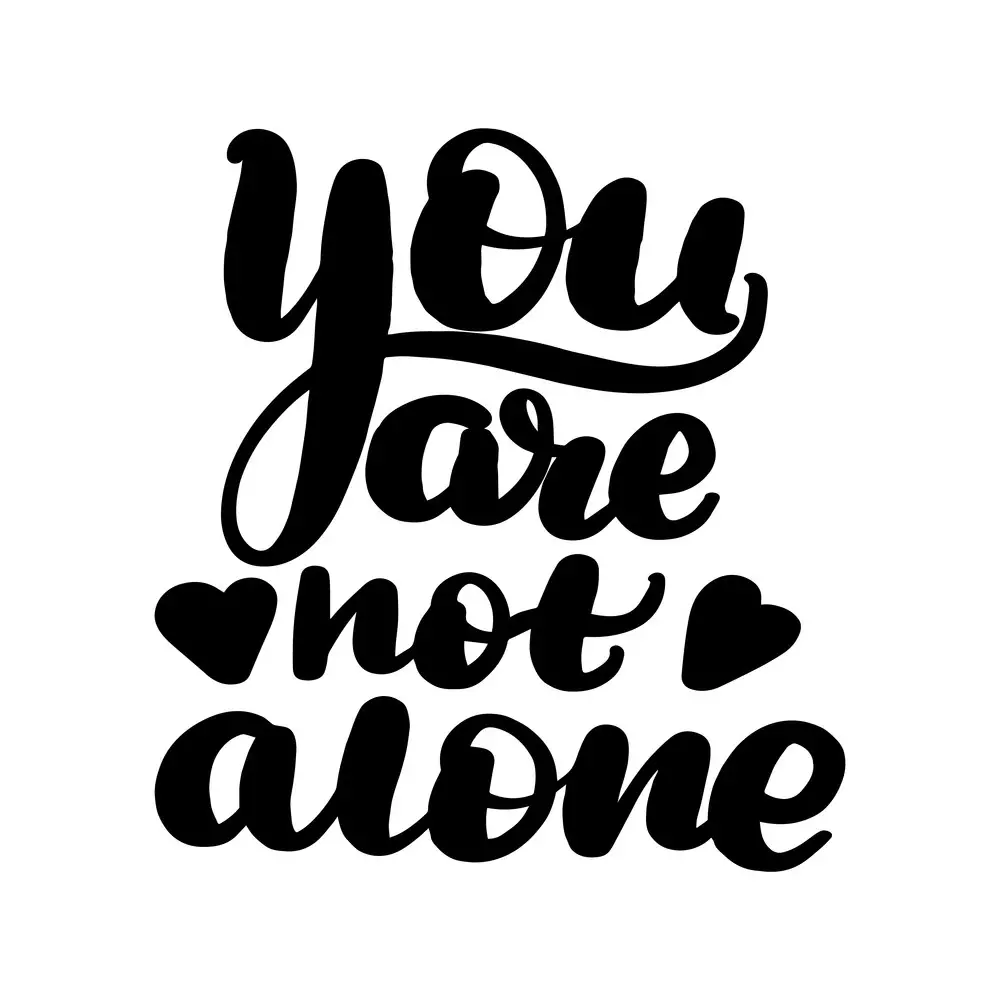
- Breaking the Silence: Why Men’s Mental Health Matters More Than Ever - April 15, 2025
- How to Transform a Home’s Patio Space into a Relaxing Space - March 23, 2025
- 5 Strategies to Use a Cell Phone to Help Manage Your Stress - March 23, 2025
This site contains affiliate links to products. We will receive a commission for purchases made through these links.


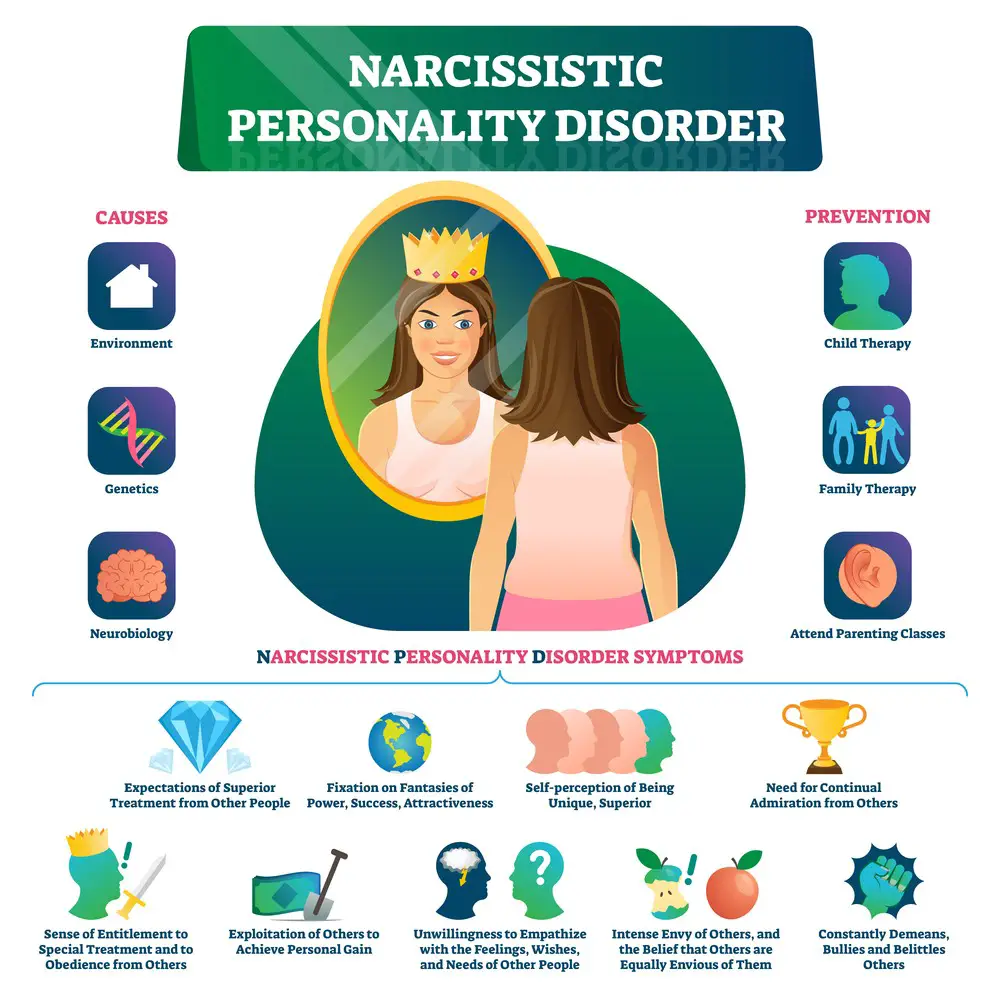 Narcissistic Abuse and Its Impact
Narcissistic Abuse and Its Impact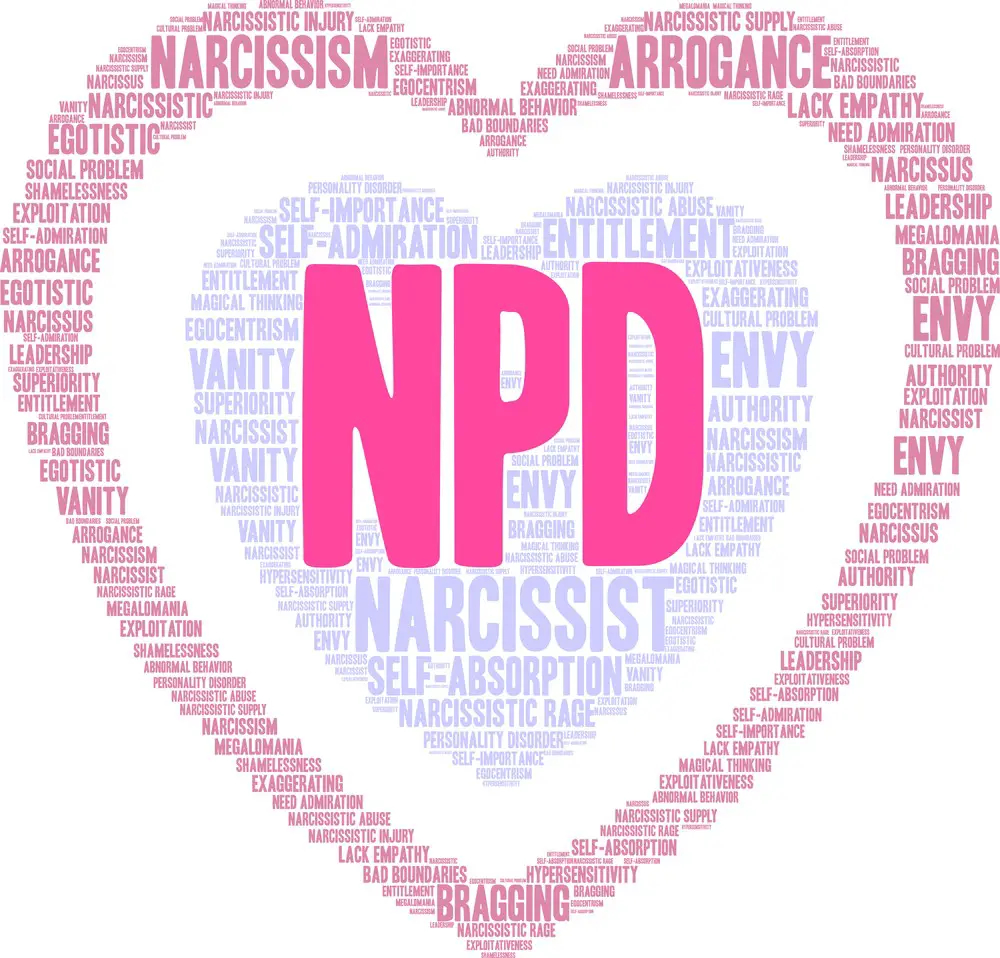 Fawn Response To Narcissistic Abuse
Fawn Response To Narcissistic Abuse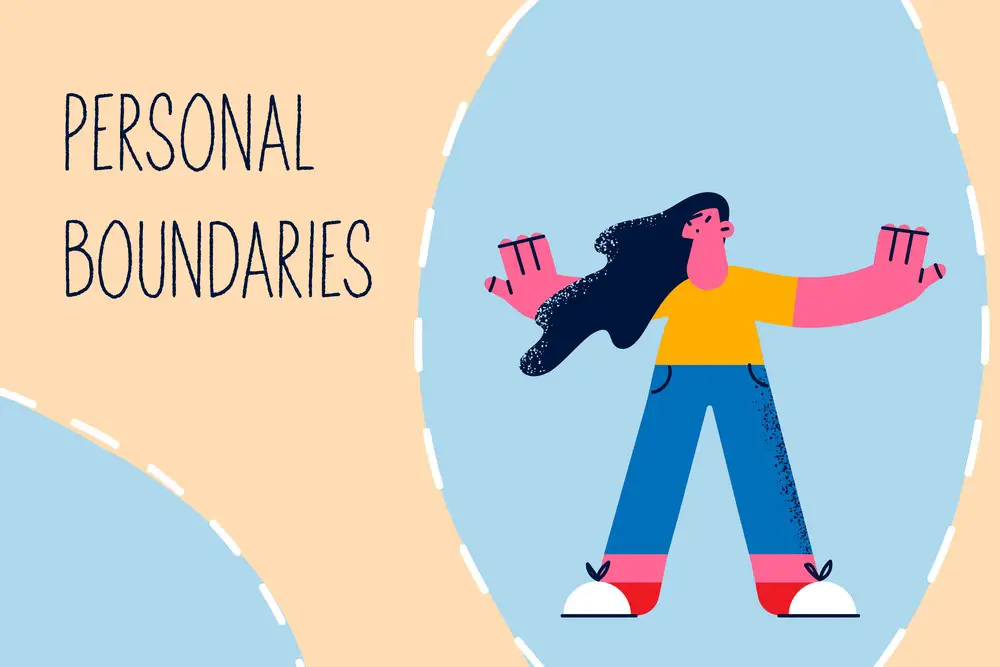 Boundaries and Relationships
Boundaries and Relationships The Role Of Childhood Trauma
The Role Of Childhood Trauma Therapeutic Approaches for Healing
Therapeutic Approaches for Healing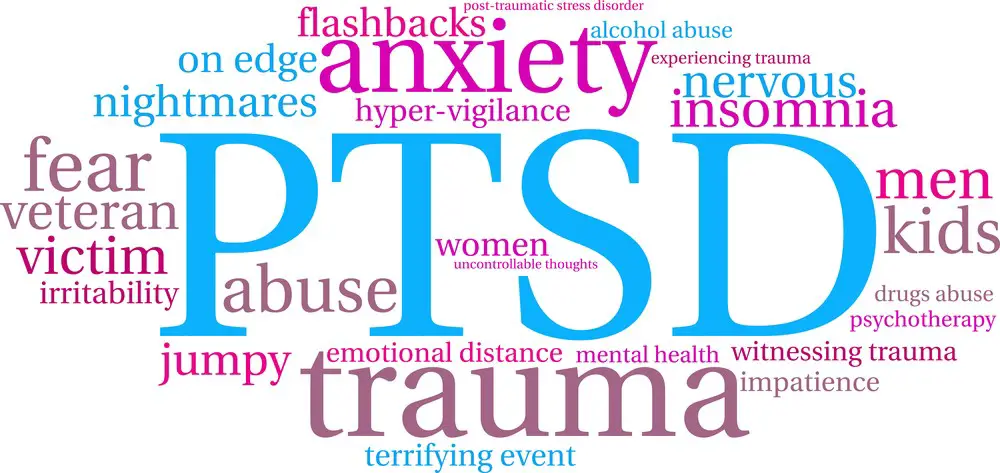 Codependency and PTSD
Codependency and PTSD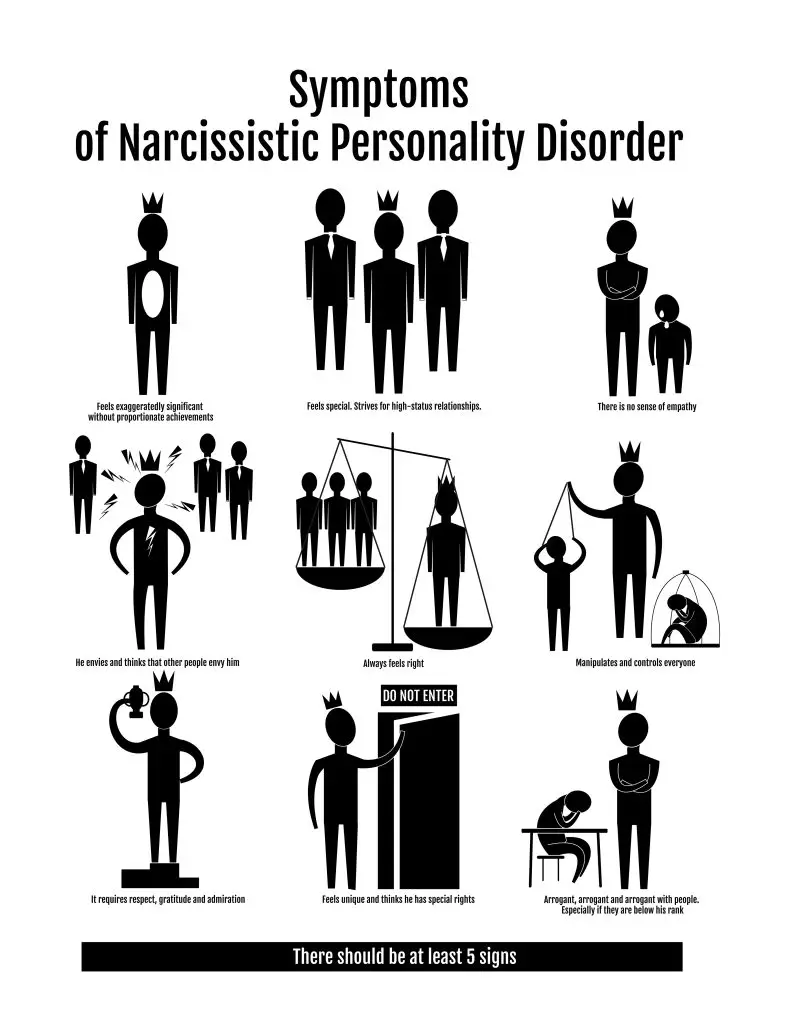 Understanding Narcissist Behavior
Understanding Narcissist Behavior
